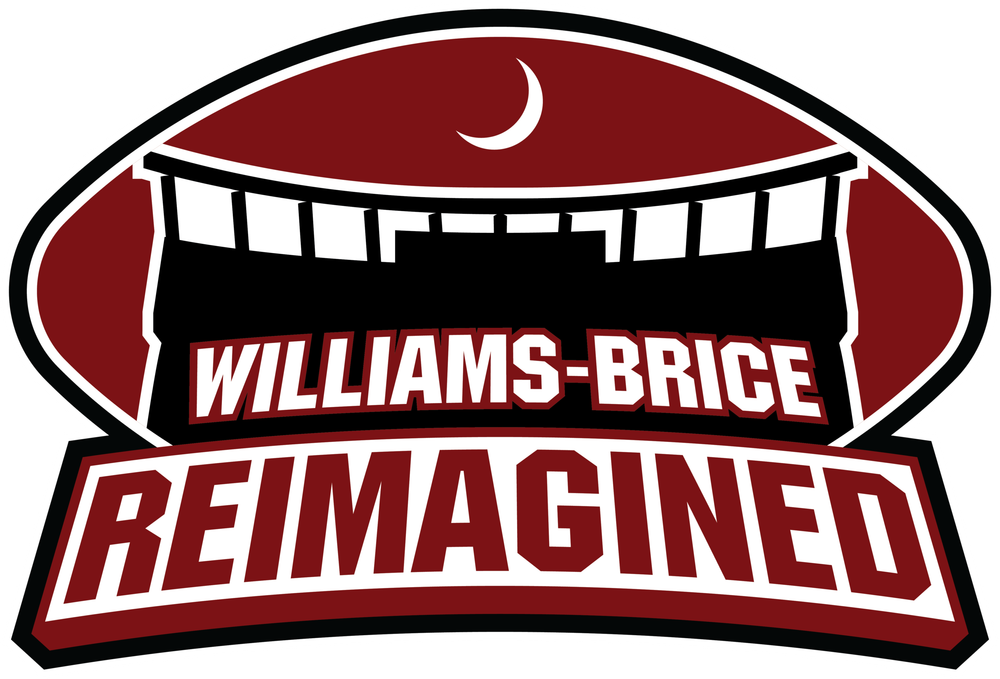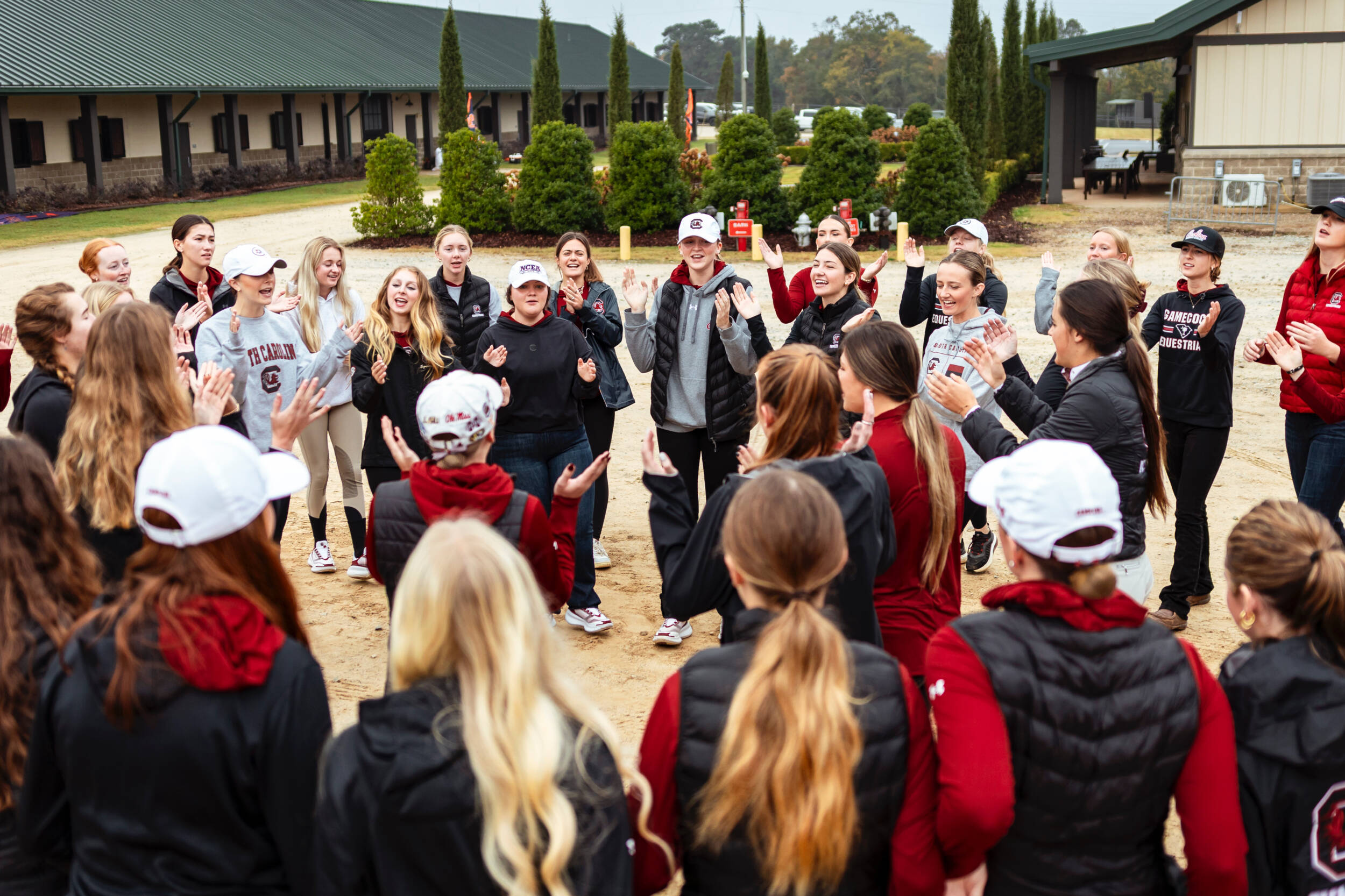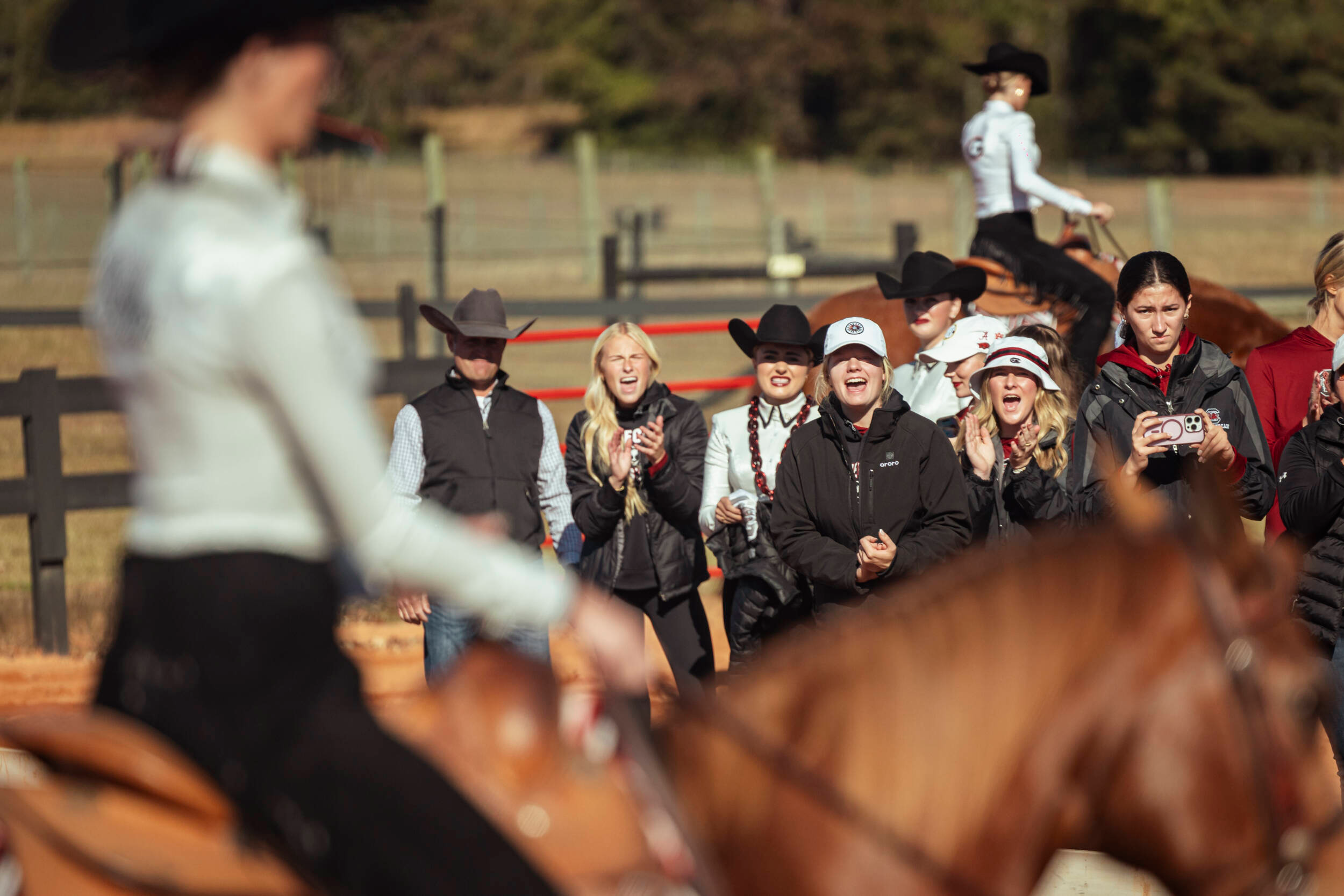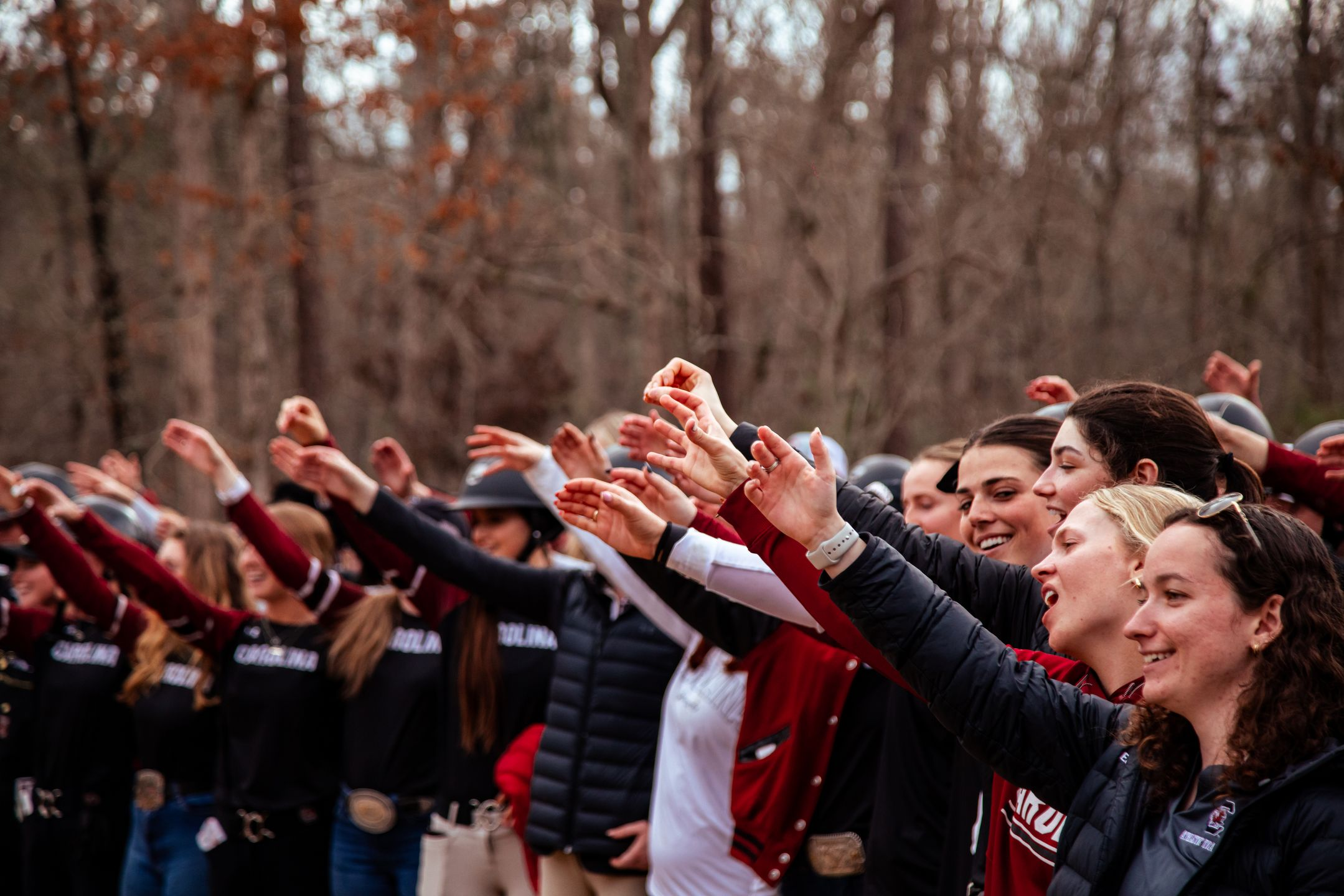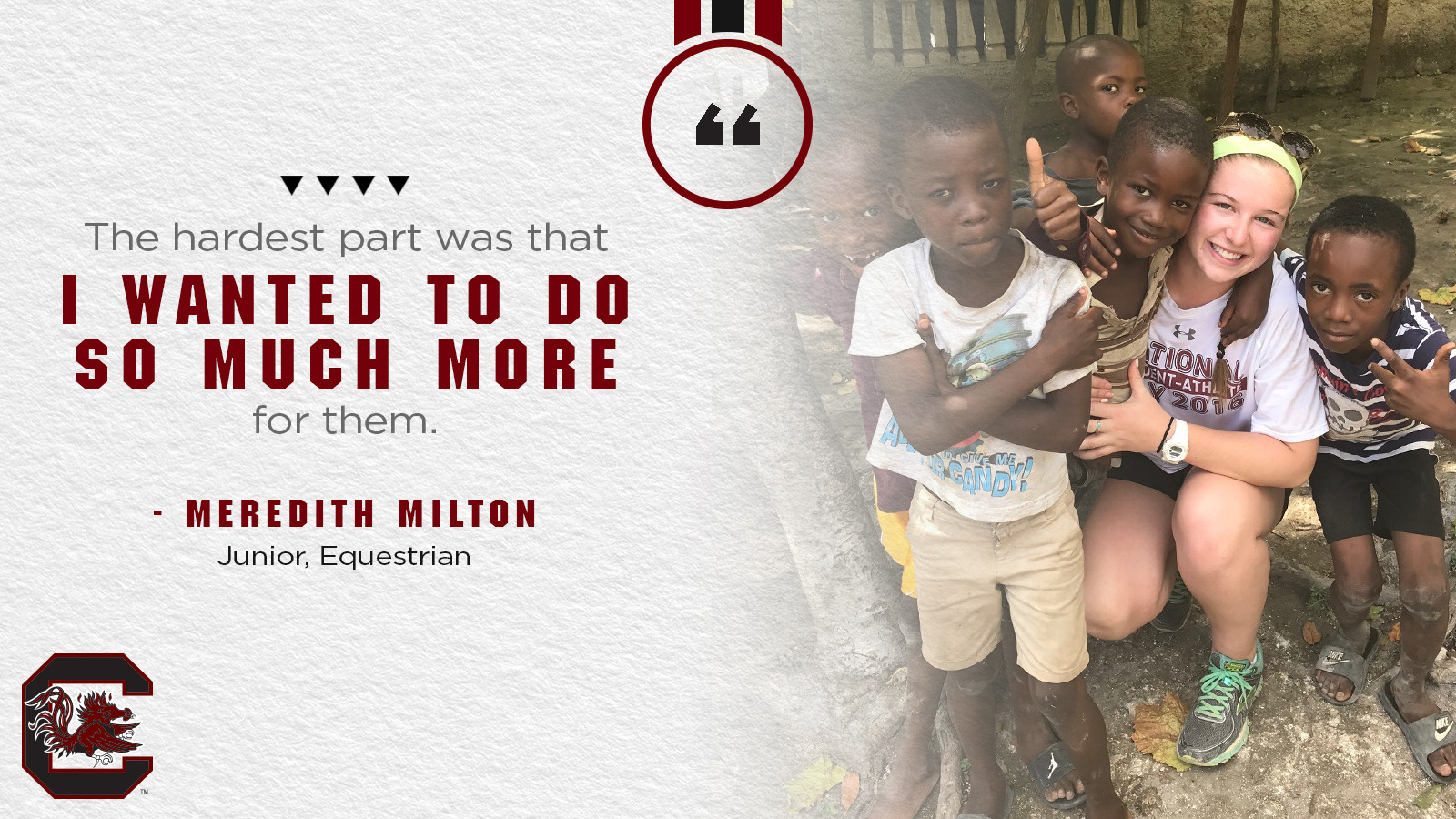
Equestrians Have Life-Changing Experience in Haiti
Jan. 25, 2018

A group of South Carolina equestrian student-athletes spent part of their holiday break on a mission trip to Haiti. Traveling with Filter of Hope, a Christian-based organization, to distribute water filters to areas without clean drinking water, the Gamecocks soon discovered that the Haitians weren’t the only ones whose lives would be changed.
“It was by far the coolest thing I’ve ever experienced in my life,” said Meredith Milton, a junior political science major. “I just connected with those kids. Even though the language barrier was really difficult, we connected through hand-signs, smiling and laughing. We had so many meaningful wordless conversations. I would cry leaving those kids every single day because they deserve so much more than they have. Just being able to provide them clean water was the coolest thing I’ve ever experienced.”
“I thought it was very humbling,” said Bridgett White, a junior mass communications major. “We were here to help them, love them, take care of them, and teach them something, but I walked away feeling like I learned more from them.”
Milton, White, juniors Sarah Isgett and Lizzie van der Walde, and senior Raleigh Bacharach were in Haiti along with a traveling party of approximately 20 college students from January 3-9.
“I really enjoyed having my teammates there,” said Isgett, a public health major who had made the same trip last year. “It was great to go back to other villages we had worked in before that now had filters and see the difference.”
“Everyone was so appreciative of what we were doing,” said van der Walde, a marketing management major. “We had little kids following us from house to house. They were so interested in what we were doing. We felt so loved while we were there by everyone.”
“The hospitality really stood out to me because everyone there was so generous,” said Bacharach, a public health major. “We would be invited into their houses for the prayers. It was really cool to see how happy they were with how little they had compared to what we have.”
The kits provided to the Haitians allow the residents to dump dirty water into a bucket that has the filter on it, and the water that comes out is clean and safe to drink. Isgett noted that they will last for approximately ten years, which is convenient since much of the country does not have complex water systems that most Americans take for granted.
I see that there is much more that needs to be done, and that we are making an impact.
Raleigh Bacharach
The student-athletes were stunned by the living conditions that would seem primitive by American standards with many of the citizens living in tiny mud houses with dirt floors. That perspective gave them a new appreciation for what they do have in the United States.

“As much as we wanted to feel sympathy for them, we couldn’t do that,” White said. “We’d have to tell them how beautiful their house was, because to them, it could have been the best house they ever had. There was one girl that invited us into her house, and she was so proud of it.
“One day it started pouring down rain, and we went and got on the bus. Those kids just stripped down, butt-naked, and started running and sliding and having such a good time. When we’re at home and it rains, we run in our house and get on our phones or watch a movie. They were just having the best time. I think that’s something I could really take away; just be happy.”
“You kind of feel bad because you have so much,” Isgett said. “We come home, and we can just get a glass of water out of the faucet. We can take a long shower, and it’s hot. It makes you appreciate everything a lot more.”
Looking back, the Gamecocks know they made a difference.
“The water alone is so important to their overall health,” Isgett said. “For them to be drinking dirty water that may have cholera in it is crazy, and for us to help them have clean water is very meaningful. Just being able to help with that is the first step to improving the overall health of the community. It’s hard because there is so much more to be done.”
“The hardest part was that I wanted to do so much more for them,” Milton added. “I felt like my work wasn’t adequate enough. I wanted to build them a house. I wanted to give them an education. You meet these amazing kids, and the clothes that they’re wearing are the only clothes that they have. It broke my heart. I wanted to pick up this little girl and bring her on the plane back with me and give her this amazing life that she deserves. I was really happy that I could give them clean water, but I felt like I let them down by not being able to give them more.”
“Just being able to pray over them to help them with things they are struggling with, I think that gave them hope,” White said. “There was a lot more than just the water.”
When their work was done, the student-athletes found it difficult to come home.
“Leaving them was tough, especially when you make meaningful connections with the kids or a whole family,” Bacharach said. “You just hope that they understand how to use the water filter. Hopefully we gave them enough direction on how to clean it and how important clean drinking water is.”
“On the last day when we were leaving, the kids would run after our truck, and that was really sad,” van der Walde said. “It was hard to remember that while their living conditions and their houses seemed really bad to us, that’s all they ever knew. To them, that’s just normal. So, trying to remember that and knowing what they’re happy with was tough.”
All of those who made the trip are anxious to make a return trip to Haiti or to other countries in need, and they’d like to bring more student-athletes from other teams as well.
“We’re already talking about how we all want to go back next year,” Bacharach said. “I see that there is much more that needs to be done, and that we are making an impact.”
“The hard part about coming back was not really being able to express to people here about what I was feeling while I was there,” White said. “I can sit here and tell people it was the best experience of my life, but until you go there, you will never really know what I’m talking about.”


